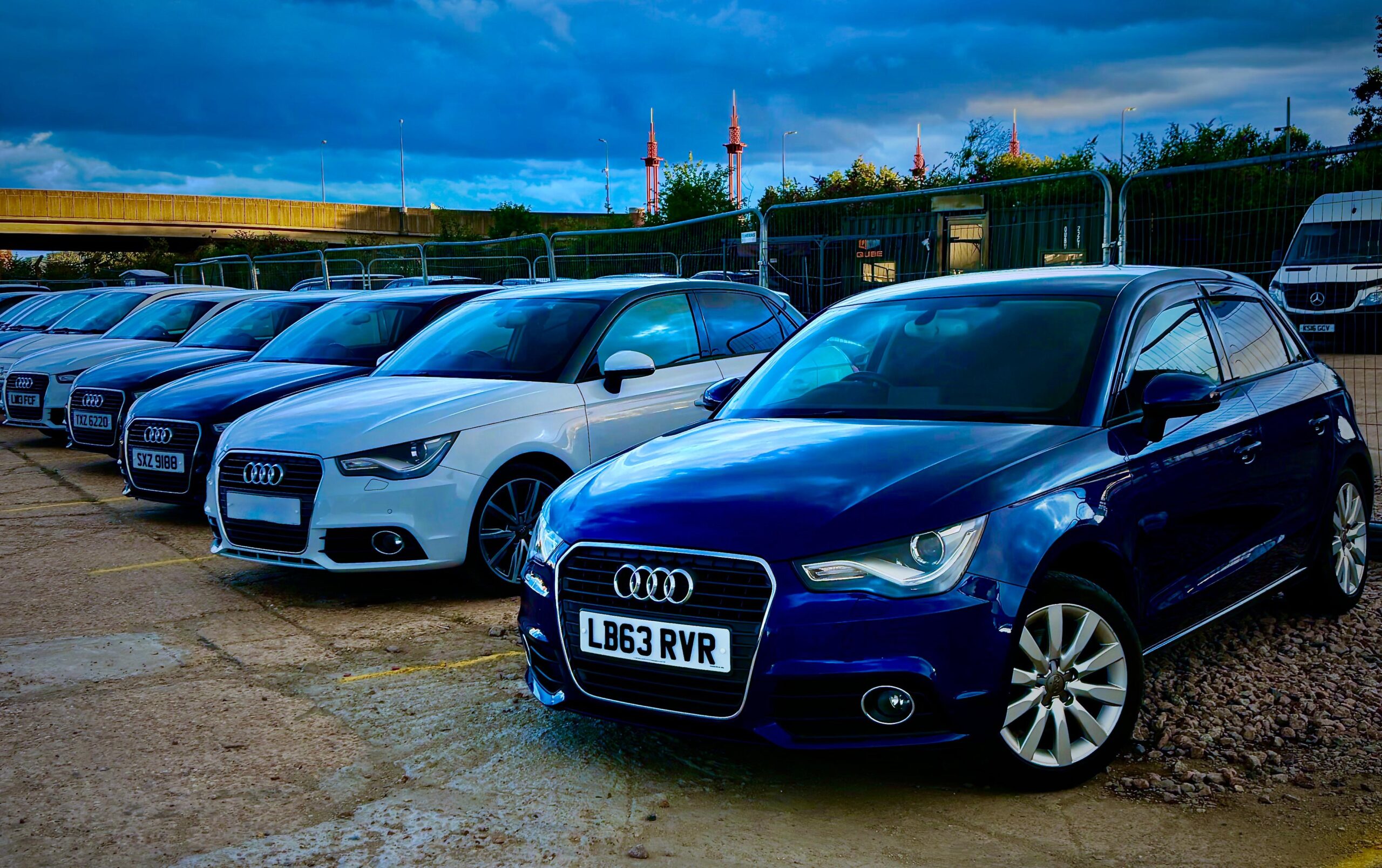Navigating London’s bustling streets, stringent emission zones, and evolving transportation policies can make choosing the right car a daunting task.
ADVERTISEMENT
Your Next Ride Awaits at Car Knights

Explore our wide range of high-quality vehicles, from Audi’s, Toyota’s, Tesla’s, and Honda’s. Let us help you find the perfect car to fit your lifestyle and budget.
ADVERTISEMENT
Whether you’re a daily commuter, an occasional driver, or someone considering a switch to a more eco-friendly vehicle, understanding the pros and cons of petrol, diesel, hybrid, and electric cars is essential.
Let’s delve into each option to help you make an informed decision tailored to London’s unique driving environment.
Understanding London’s Driving Landscape
Urban Traffic and Congestion
London’s roads are notorious for heavy traffic and frequent stop-and-go conditions.
This environment can significantly impact fuel efficiency and vehicle performance, making it crucial to choose a car that handles urban driving well.
Emission Zones and Charges
The Ultra Low Emission Zone (ULEZ) and Congestion Charge are designed to reduce pollution in the city.
Vehicles that don’t meet specific emission standards are subject to daily charges, which can add up quickly for regular drivers.
Understanding these zones and ensuring your vehicle complies can save you money and contribute to cleaner air.
Fueling and Charging Infrastructure
While petrol and diesel stations are widespread, electric vehicle (EV) charging points are rapidly increasing across London.
However, access to home charging can be a challenge for some residents, particularly those without off-street parking.
Public charging costs can also be higher than home charging, affecting the overall cost-effectiveness of EVs.
Petrol Cars: The Traditional Choice
Advantages
- Lower Initial Cost: Petrol cars generally have a lower purchase price compared to hybrids and EVs.
- Widespread Fuel Availability: Petrol stations are readily accessible throughout London.
If you’re considering paying without finance, you might want to check out our page on how to pay cash for a car at a dealership.
Disadvantages
- Higher Running Costs: Fuel prices and maintenance can be more expensive over time.
- Emission Charges: Older petrol models may not meet ULEZ standards, leading to additional daily charges.
Diesel Cars: Efficiency with Caveats
Advantages
- Fuel Efficiency: Diesel engines often provide better fuel economy, especially on motorways.
- Torque for Heavy Loads: Diesel vehicles are suitable for towing and carrying heavy loads.
Disadvantages
- Emission Concerns: Diesel engines emit higher levels of nitrogen oxides (NOx), contributing to air pollution.
- Regulatory Restrictions: Many diesel cars face higher charges or bans in emission zones like ULEZ.
For those buying used, it’s wise to read what to do if a dealership sells you a faulty car in the UK.
Hybrid Cars: A Middle Ground
Advantages
- Improved Fuel Economy: Hybrids combine an internal combustion engine with an electric motor, enhancing fuel efficiency.
- Lower Emissions: They produce fewer emissions compared to traditional petrol or diesel cars.
- No Need for Plug-In Charging: Standard hybrids don’t require external charging, making them convenient for those without charging facilities.
If you’re considering a popular option like the Yaris, check out our guide on what insurance group is a Toyota Yaris Hybrid.
Disadvantages
- Higher Purchase Price: Hybrids can be more expensive upfront than conventional cars.
- Battery Replacement Costs: Over time, battery replacement can be costly.
Electric Vehicles (EVs): The Future of Urban Driving
Advantages
- Zero Emissions: EVs produce no tailpipe emissions, making them ideal for London’s emission zones.
- Lower Running Costs: Electricity is generally cheaper than petrol or diesel, and EVs have fewer moving parts, reducing maintenance costs.
- Incentives and Exemptions: EVs are often exempt from ULEZ and Congestion Charges, offering significant savings.
Curious about options? Explore our page on Tesla models to see what the electric future looks like.
Disadvantages
- Charging Infrastructure: Access to charging points can be limited, especially for those without home charging options.
- Higher Initial Cost: EVs can be more expensive to purchase, though prices are decreasing over time.
Tailoring Your Choice to Your Driving Needs
- Daily Commuters: EVs or hybrids are ideal for regular city driving, offering cost savings and compliance with emission zones.
- Occasional Drivers: Petrol cars may be more economical for infrequent use, provided they meet emission standards.
- Long-Distance Travelers: Diesel vehicles can be efficient for motorway driving but may incur charges within London.
- Rideshare and Delivery Drivers: EVs can offer significant savings on fuel and maintenance, along with exemptions from city charges.
If you’re still comparing options, have a look at our guide on how to pay for a car at a dealership.
Looking Ahead: Future-Proofing Your Vehicle Choice
With plans to phase out new petrol and diesel car sales by 2035, transitioning to hybrids or EVs can be a forward-thinking decision.
Investing in a vehicle that aligns with future regulations can save money and reduce environmental impact in the long run.
Want to explore practical options? Browse our range of Honda models known for fuel efficiency and urban versatility.
Conclusion
Choosing the right car for London involves balancing cost, convenience, and compliance with environmental regulations.
While petrol and diesel cars may offer lower upfront costs, hybrids and EVs provide long-term savings and are better suited to the city’s evolving transportation landscape.
Consider your driving habits, access to charging or fueling infrastructure, and future regulations to make the best choice for your needs.
ADVERTISEMENT
Your Next Ride Awaits at Car Knights

Explore our wide range of high-quality vehicles, from Audi’s, Toyota’s, Tesla’s, and Honda’s. Let us help you find the perfect car to fit your lifestyle and budget.
ADVERTISEMENT
